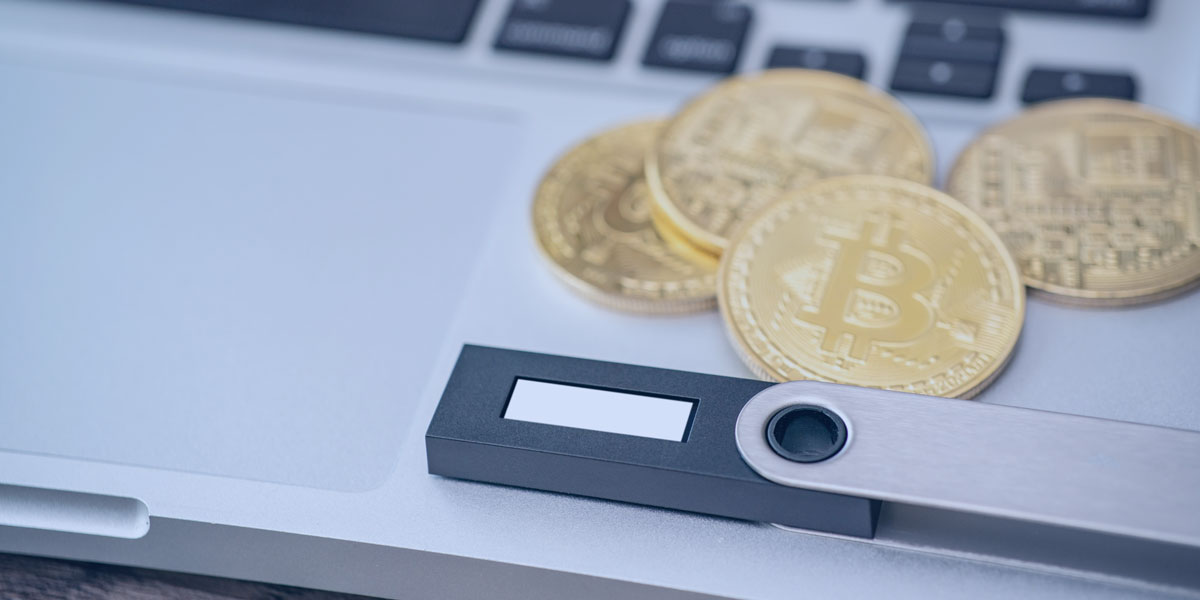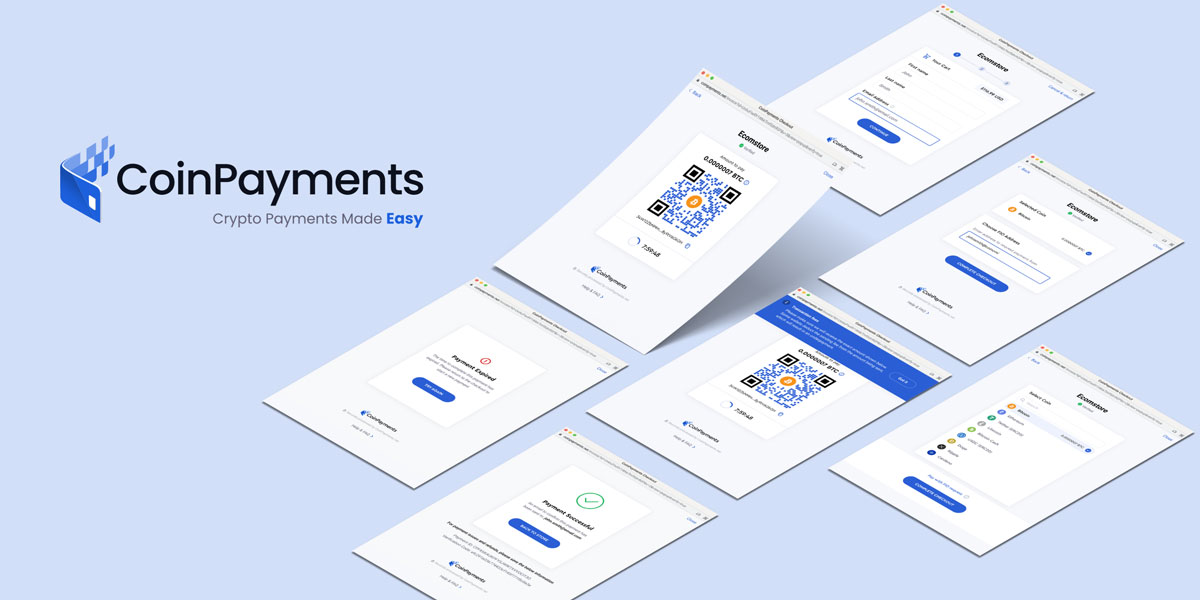If you’ve ever wondered how to keep your digital treasures safe, you’re in the right place. Today, we’re diving deep into hardware and software wallets – two popular options for storing crypto assets. We’ll explore their features, benefits, and even drawbacks so you can make an informed choice that aligns with your needs. So, sit back, and let’s unravel the mystery of crypto wallets together!
What are Crypto Wallets?

What exactly are crypto wallets? Think of them as your personal digital vaults where you can securely store various digital assets-cryptocurrencies like Bitcoin and Ethereum or even those trendy NFTs you’ve been eyeing. But these wallets are more than just digital lockboxes.
They’re also your gateway to the broader crypto ecosystem. You can use them to swap your assets, stake your coins, or even dive into the world of decentralized finance (DeFi).
How Do Crypto Wallets Work?
Your crypto wallet doesn’t technically ‘store’ your digital assets. Your cryptocurrencies, NFTs, and other digital treasures actually reside on the blockchain. Your wallet acts like a keychain, holding your private keys that grant you access to your assets on the blockchain.
Now, let’s talk about these private keys.
Private keys are like a super-secure password made up of a unique combination of numbers and words. These keys prove that you’re the rightful owner of your wallet and allow you to make transactions. If you ever find yourself locked out of your wallet – say, you accidentally delete your crypto Wallet app – your recovery seed phrase (a human-friendly version of your private keys) will be your lifesaver.
But what about sending and receiving crypto? That’s where your wallet’s public key and wallet address come into play. While the public key is like your wallet’s ID, it’s the wallet address that you’ll share when you want to receive funds. And when you’re sending crypto, all you need is the recipient’s wallet address and enough funds to cover the transaction fees.
Software Crypto Wallet Explained

Software wallets are the digital-only versions of crypto wallets, and they’re pretty versatile. You can get them for free, and they come in two types: custodial and non-custodial. With custodial wallets, your private keys are managed by a centralized entity. Non-custodial wallets, on the other hand, have your private keys right on your device, like your smartphone or computer, where you can control them.
Now, software wallets can live in various places – your web browser, desktop, or even your mobile device. They’re often called ‘hot wallets’ because they’re connected to the internet, making them a bit more susceptible to online hackers compared to hardware wallets, which are offline by default.
Setting up most software wallets is a breeze. Just download the app, create a new wallet, and voila, you’re ready to manage your digital assets. Metamask is a solid example; you can get it as a browser extension or even as a mobile app.
And here’s a cool feature: many software crypto wallets, like Metamask or Trust Wallet, come with built-in dApp browsers. This means you can connect to various decentralized applications right from your wallet. Plus, if you’re out shopping, you can make quick payments by scanning a QR code or using near-field communication (NFC).
Types of Software Crypto Wallets
Software wallets are often called ‘hot wallets’ because they’re always connected to the internet, making them super accessible. But did you know there are different kinds? Let’s break it down.
Web Wallets
Web wallets are browser extensions and the go-to for many because they’re so easy to use. Just open your browser, and you’re in. No downloads, no installations. Some popular examples include browser-based wallets and exchange wallets like those you’d find on Binance.
But be cautious; some web wallets hold your private keys, which can be risky. Newer web wallets offer better key management options, like multi-signature setups for shared control.
Desktop Wallets
Then we have desktop wallets, the downloadable software that lives on your computer. These give you full control over your keys and assets. You’ll find a ‘wallet.dat’ file stored locally on your computer, which holds your private keys. Guard this file with your life – or at least a strong password. If you lose this file or forget your password, you’re out of luck.
But on the bright side, desktop wallets are generally safer than web wallets, though they’re not immune to physical damage or malware.
Mobile Wallets
Searching online for “What is the best software wallet” might lead you to different kinds of mobile wallets. These are basically desktop wallets that fit in your pocket. They’re apps on your smartphone, making them super convenient for daily transactions and QR code payments. Metamask and Trust Wallet are popular choices here. But remember, mobile devices can be vulnerable to malware and bad apps, so always use strong passwords and keep backups of your keys.
Innovative solutions, like multi-signature approaches for shared control of your private keys, are emerging. Web wallets are user-friendly, mobile wallets offer convenience, and desktop wallets add an extra layer of security.
Pros and Cons of Software Crypto Wallets
Pros
Accessibility
First off, let’s talk about how user-friendly software wallets are. You can access your crypto from pretty much any device with an internet connection. That’s like having a bank in your pocket!
Easy to Set Up
If you’re new to the crypto world, you’ll love how easy it is to set up a software wallet. Most of the time, it’s as simple as downloading an app and following a few prompts.
Versatile
One wallet, multiple cryptocurrencies. Many software wallets support a variety of digital assets, so you don’t have to juggle multiple platforms.
Cost-Effective
And let’s not forget, most software wallets are free. That’s a big win if you’re watching your budget.
Cons
Security Risks
Now, let’s flip the coin. Software wallets are online, which means they’re not immune to the dark side of the internet—think hacking, malware, and phishing scams. So, you’ll need to be extra vigilant.
Not as Bulletproof as Hardware Wallets
While software wallets are convenient, they don’t offer the same level of security as hardware wallets.
Third-Party Dependencies
Some software wallets lean on third-party services for certain features, which can be a double-edged sword. It might add functionality, but it also means you’re placing trust in an external entity.
Hardware Crypto Wallet Explained

A hardware wallet is a physical device that keeps your private keys safe and sound, far away from the prying eyes of the internet. It’s your personal gatekeeper to the blockchain, allowing you to sign transactions and interact with various platforms.
Now, you might hear the term “cold wallet” and think it’s the same as a hardware wallet. Not quite. While a hardware wallet can act as a cold wallet, storing your assets in a secure environment, it’s also much more versatile. You can use it to interact with smart contracts and other blockchain applications, all while keeping your valuable assets separate and secure.
The internet is a wild place, and online threats are the boogeymen of the digital asset world. Hardware wallets are like your personal security guards, keeping those threats at bay by storing your keys offline.
So, what makes a hardware wallet tick? Let’s break it down:
- Secure Microcontroller: Think of this as the brain of the operation. It’s where your private keys are stored and guarded like treasure. Designed to withstand physical attacks, this microcontroller is isolated from the internet, making it a fortress for your private keys.
- Display Screen: This is your dashboard, showing you everything you need to know – your balance, transaction details, and any prompts or notifications.
- Input Buttons: These are your controls, the buttons you’ll use to navigate the device’s menu and make selections. They make it easy for you to interact with your hardware wallet.
Like some of its software counterparts, many hardware wallets support multiple cryptocurrencies. A single hardware wallet like Ledger or Trezor can keep everything under one secure roof.
How Hardware Crypto Wallets Work
Think of a hardware crypto wallet as a mini-computer designed to do one thing exceptionally well: keep your crypto safe. It’s so basic it usually has just a button or two and maybe a tiny screen. The magic happens when you want to make a transaction. You plug the hardware wallet into your computer, and a piece of software called a crypto bridge comes into play.
Here’s how it works: You initiate a transaction on your computer. The crypto bridge sends this “unsigned” transaction to your hardware wallet. Inside this secure device, the transaction gets the green light – your private key signs it. Then, it’s back to the crypto bridge, which broadcasts your now “signed” transaction to the blockchain. The beauty of it all? Your private key never leaves the hardware wallet, making the process ultra-secure.
Pros and Cons of Hardware Crypto Wallets
Pros:
Security:
Your private keys are stored offline, making them virtually hack-proof. Add in features like password protection and two-factor authentication, and you’ve got tight security for your digital assets.
You’re in control:
Total control over your private keys means you don’t have to rely on third-party services.
One Wallet, Many Coins:
Many hardware wallets support a wide array of cryptocurrencies so that you can manage your diverse portfolio from one secure place.
On-the-Go Access:
These wallets are portable, so you can carry your digital currency in your pocket and transact wherever you go.
Cons:
Costly:
Quality security comes at a cost. Hardware wallets can be more expensive upfront compared to their software counterparts.
Not So Quick on the Draw:
If you’re the type who likes to spend crypto frequently, hardware wallets might slow you down a bit since you’ll need the physical device to approve transactions.
Loss or Damage:
Lose it, and you’re in trouble. Unless you’ve got a backup of your private keys, a lost or damaged hardware wallet could mean saying goodbye to your crypto assets.
User-Friendly? Maybe Not:
Some hardware wallets have features that might be a bit complex for crypto newbies.
Hardware wallets offer robust security and a lot of control, but they’re not for everyone. If you’re a frequent trader or not so tech-savvy, you might find them a bit cumbersome. But if what you’re after is a secure vault for your digital treasure, a hardware wallet could be just the ticket.
Which Type of Crypto Wallet is Best For You?
So, you’re diving into the crypto world and wondering what type of wallet is your perfect match, right? Let’s break it down based on your needs and lifestyle.
How Active Are You in the Crypto Space?
Long-Term Holder: If you’re planning to buy and hold popular cryptocurrencies like Bitcoin or Ethereum for the long haul, a hardware wallet is your safest bet. It keeps your assets offline and away from the prying eyes of hackers.
Daily Trader or DeFi Enthusiast: If you’re the type who’s always swapping tokens or diving into decentralized finance apps, a software wallet is more your speed. Desktop and mobile wallets offer a good balance of security and accessibility for frequent use.
Are You Forgetful or Organized?
The Forgetful Type: If you’re someone who tends to lose things or forget passwords, a custodial wallet might save you a lot of headaches. You can recover your credentials through the custodial service, so it’s a bit more forgiving on memory lapses.
The Organized Type: If you’re meticulous about keeping track of your stuff, then non-custodial wallets, where you have full control, could be right up your alley.
New to Crypto or Not Tech-Savvy?

If you’re just dipping your toes into the crypto waters or find tech jargon confusing, a trusted custodial solution like the CoinPayments wallet can offer you both security and peace of mind. It’s user-friendly and comes with the added benefit of recovery options.
So, what’s it going to be? Your wallet choice should align with your crypto activity, lifestyle, and tech comfort level.




